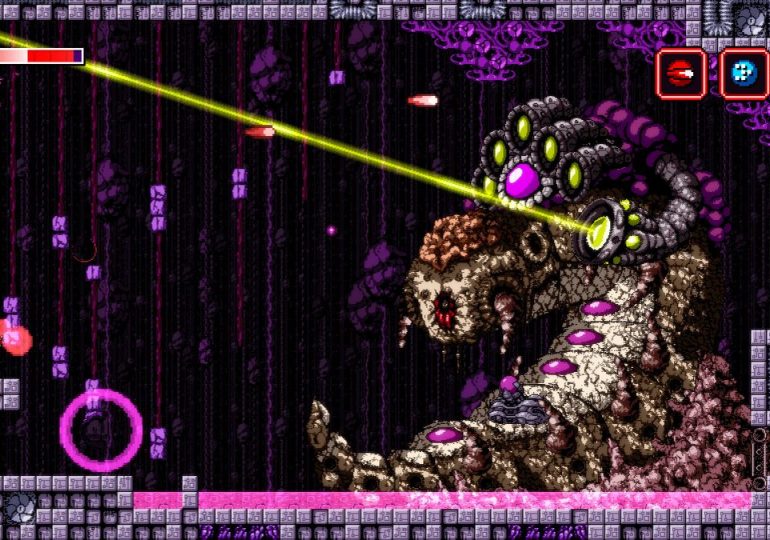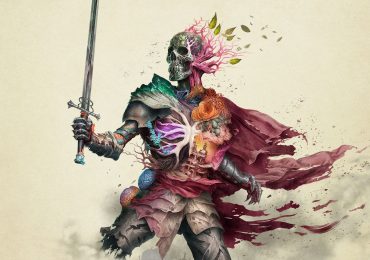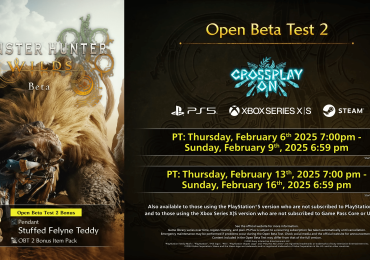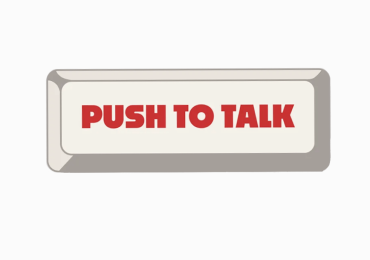There is arguably no more idiosyncratic descriptor in the entirety of gaming than “Metroidvania.”
A portmanteau of the beloved Metroid and Castlevania franchises, the term refers primarily, though not exclusively, to a subgenre of side-scrolling action-adventure games that emphasize nonlinear exploration and utility-based progression. Over the last two decades, Metroidvanias have undergone a renaissance in popularity beyond its namesakes with the advent of a wave of critically acclaimed games led by independent developers.
From time-tested masterpieces like Castlevania: Aria of Sorrow and Metroid Prime to modern masterpieces like Ori and the Will of the Wisps, Prince of Persia: The Lost Crown, and more, here are the best Metroidvania games you can play right now.
Axiom Verge
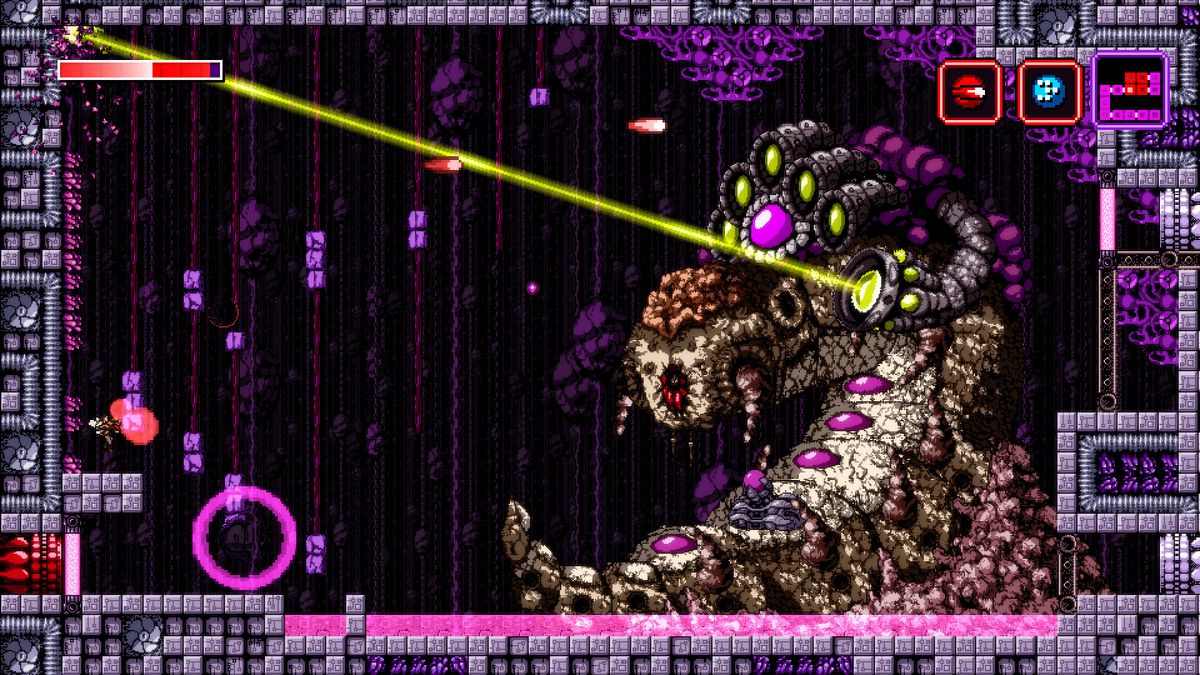
Where to play: Nintendo Switch, PlayStation 4, PlayStation Vita, Wii U, Windows PC, and Xbox One
Nearly a decade (and one sequel) later, the original Axiom Verge remains an outstanding entry in the Metroidvania genre thanks to its crunchy, lo-fi aesthetic, amazing soundtrack, and interesting abilities. Created solely by Thomas Happ, Axiom Verge places you in the white lab coat of Trace, a laboratory assistant charged with saving a crumbling alien civilization. As with other Metroidvanias, you’ll explore the world and unlock new areas as you gain new abilities.
The usual suite of grappling hooks and health upgrades is supplemented by some more unique options. One early example, the Address Disruptor, allows you to alter the behavior of some enemies and even change your environment. I won’t spoil anything here, but Axiom Verge is a game that encourages you to experiment and not take anything at face value.
After you’ve mastered Axiom Verge, you can dive back in with its randomizer option. This generates a procedural world seeded with all the same bosses and abilities, but challenging you with a unique map layout and progression system. You’ll encounter bosses in a different order, and enemies will be placed in different areas, forcing you to switch up your usual strategies. —Alice Jovanée
Blasphemous 2
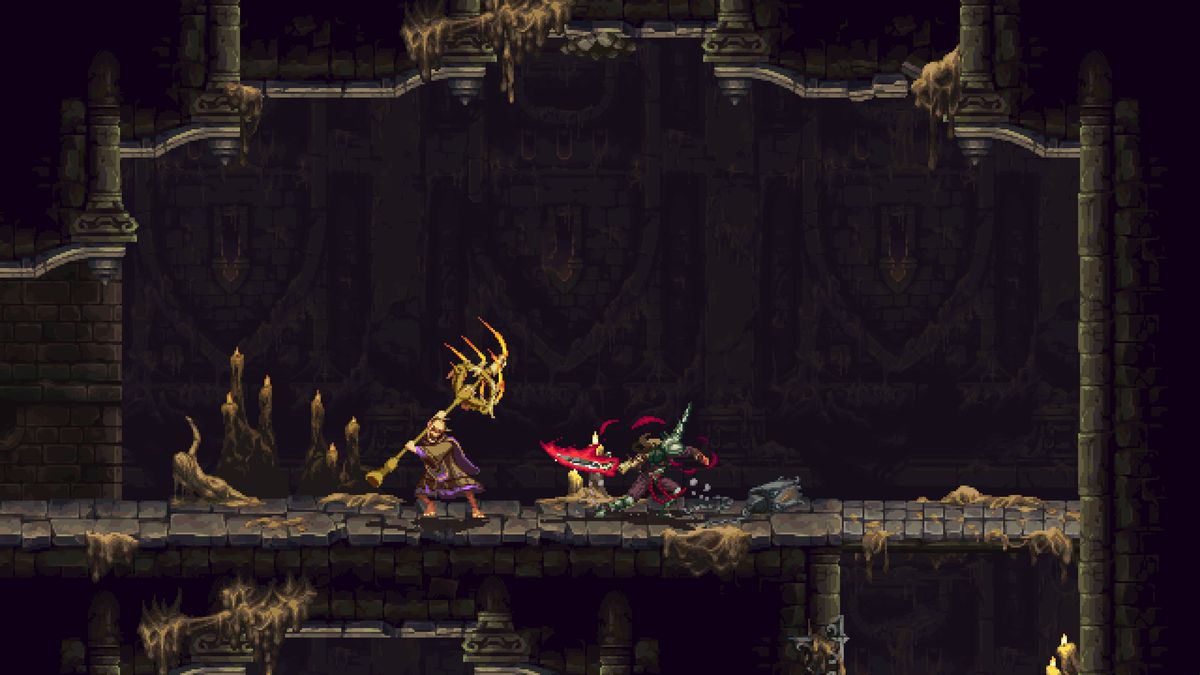
Where to play: Nintendo Switch, PlayStation 4, PlayStation 5, Windows PC, Xbox One, and Xbox Series X
While the original Blasphemous set an incredible standard with its wholly original storyline and art style (all inspired by Spanish Catholicism, of all things), the sequel bested that game on every single front.
The controls feel more fluid, the detailed pixel art is more bizarre, and the introduction of new gameplay mechanics, like three primary weapons with their own mobility options, really open up the possibilities in combat and exploration. This is one of the few 2D Soulslikes that approaches the depth and genius of FromSoftware’s efforts, and that’s massively impressive coming from an indie studio like The Game Kitchen. —Russ Frushtick
Castlevania: Aria of Sorrow
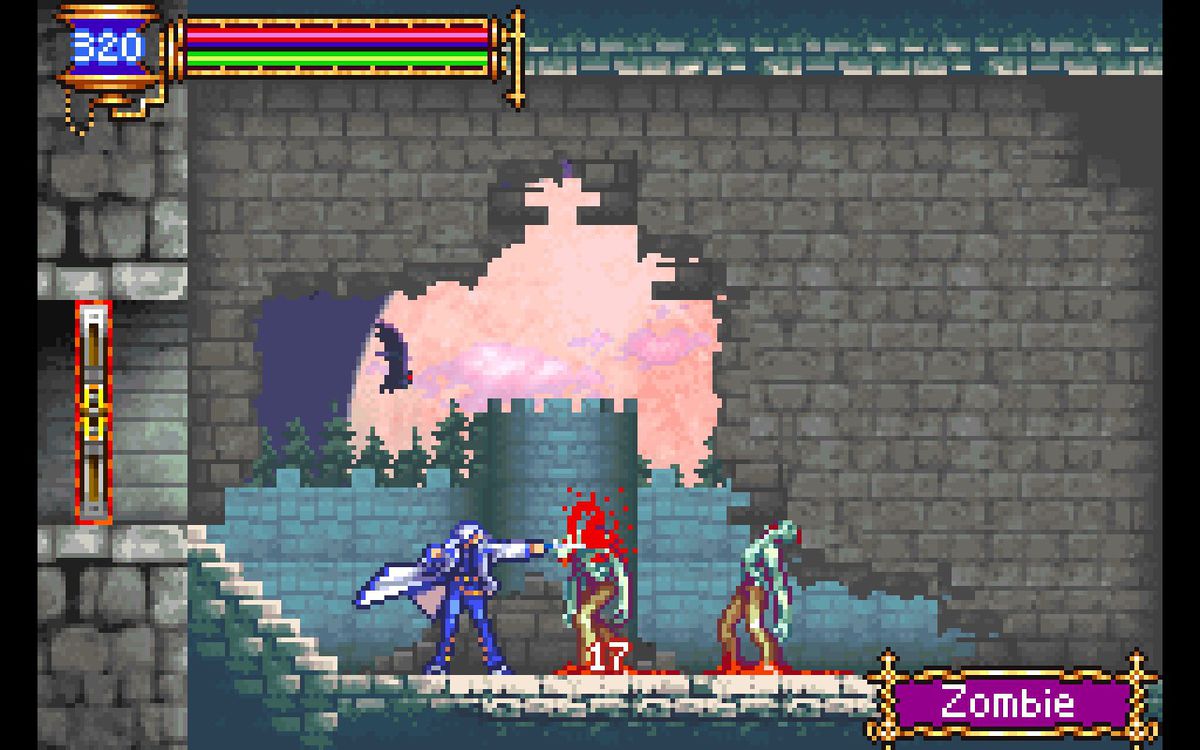
Where to play: Game Boy Advance, Nintendo Switch, PlayStation 4, Windows PC, and Xbox One
Symphony of the Night might get all of the shine for introducing the Metroid formula to Castlevania, but Aria of Sorrow is when the pairing was perfected. Thanks to the innovative introduction of capturable souls, every single enemy in Aria of Sorrow is waiting to offer up some new ability or passive perk (so long as you’re willing to kill about 1,000 of them).
Toss in some of the best-looking 2D pixel art ever made (this walk animation… drool) and a surprisingly twisty-turny story, and there’s plenty to love about Castlevania: Aria of Sorrow. Better still, the story continues in the equally great Dawn of Sorrow, so long as you have a Nintendo DS lying around and don’t mind some touchscreen shenanigans. —RF
Cave Story
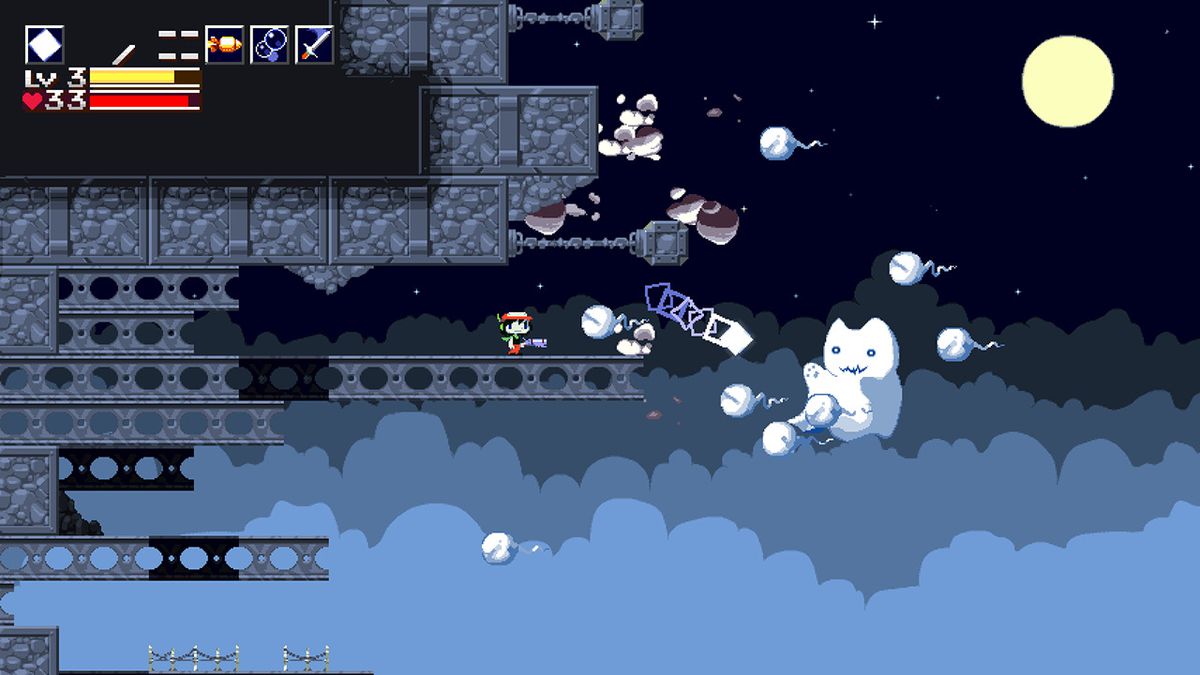
Where to play: Nintendo 3DS, Nintendo DSi, Nintendo Switch, Wii, and Windows PC
Developed over the course of five years, Daisuke “Pixel” Amaya’s one-man passion project was the indie game darling of its generation: a platform action-adventure that revitalized the Metroidvania genre as a whole with its immersive levels, charming characters, and inventive upgrade system.
As an amnesiac robot who wakes up in the depths of a massive floating island, you’ll have to arm yourself and explore the secrets of this vast and strange world in order to save its denizens from a terrifying fate. You’ll come across a host of memorable characters in your quest for answers, including a fellow robot soldier named Curly Brace and an oafish boss named Balrog who looks suspiciously like a sentient bar of soap.
While the traversal puzzles have certainly begun to show their age, Cave Story’s weapon system — which relies on players collecting orange triangular crystals in order to strategically upgrade and degrade their firearms to unlock abilities — and moment-to-moment combat feels as fresh and exciting as the day it was first released. Top that all off with an infectious chiptune soundtrack, and you’ve got a bona fide Metroidvania classic on your hands. —Toussaint Egan
Dead Cells
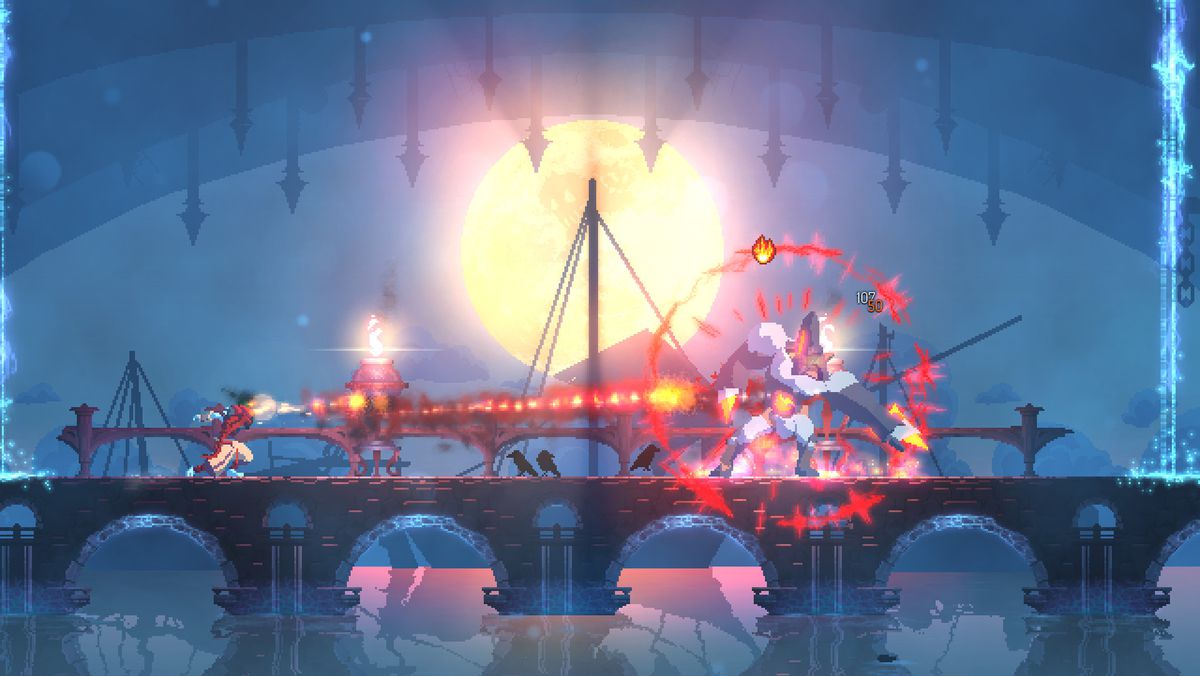
Where to play: Android, iOS, Nintendo Switch, PlayStation 4, PlayStation 5, Windows PC, Xbox One, and Xbox Series X
Back in 2018, the dedicated team at Motion Twin pulled off what many might’ve thought an impossible feat: a satisfying roguelike with RPG elements and a Metroidvania-style progression system. Dead Cells challenges you to navigate a dilapidated castle and slay all of its bosses in a single run. If that sounds tough, don’t worry; you aren’t expected to survive. Every death sends you back to where you started, but you’ll start over with new knowledge of your enemies and ways to optimize your route throughout the castle. Each death in Dead Cells is a learning experience, and class is most definitely in session.
Dead Cells’ enemies and bosses are unforgiving, and even the lowest minion can cut a run short if you aren’t careful. This forces you to rely on the game’s remarkably tight controls, which allow you to deftly roll, mantle, and jump out of harm’s way. As you learn enemy behaviors and new abilities, additional routes through the castle are revealed, which hold more challenging bosses and greater rewards.
With a total of five pieces of post-launch DLC, including one inspired directly by Castlevania, it’ll be a while before you experience everything Dead Cells has to offer, making it a standout title in genre. —AJ
Hollow Knight
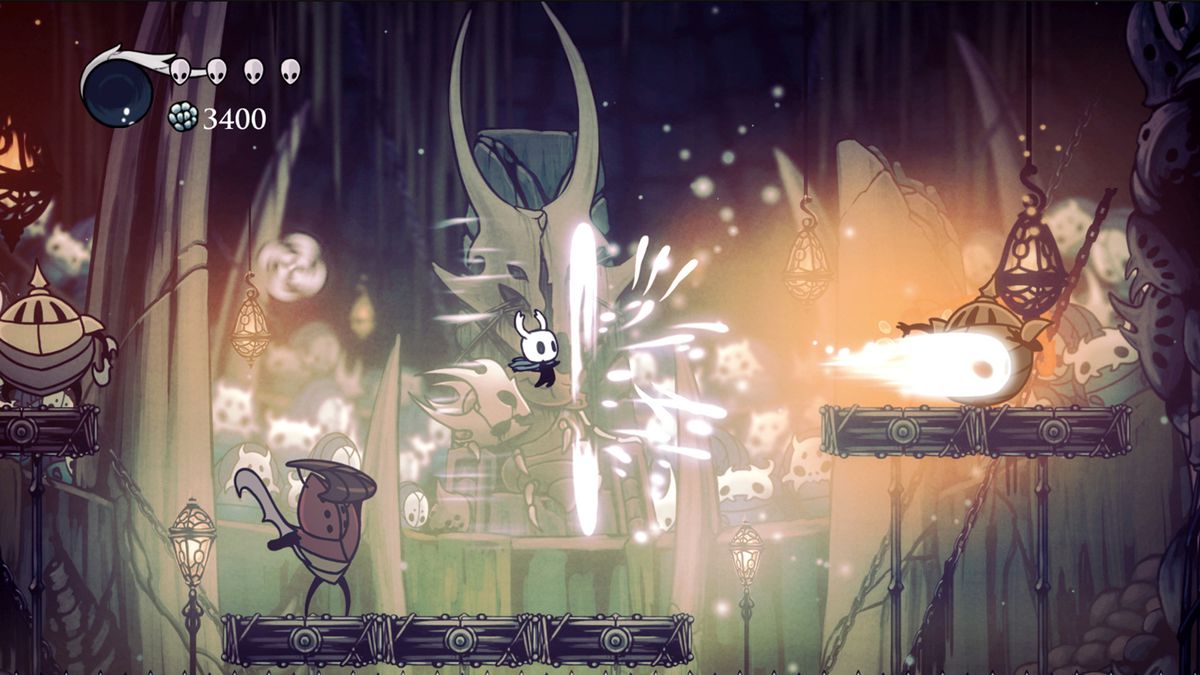
Where to play: Nintendo Switch, PlayStation 4, Windows PC, and Xbox One
It’s been over seven years since Team Cherry’s 2D side-scrolling debut was released, and fans are still eagerly (see: agonizingly) awaiting official word on the game’s follow-up, Hollow Knight: Silksong.
It’s not difficult to see why: Hollow Knight remains one of the greatest Metroidvania games of the 2010s, thrusting players into an byzantine world of perilous challenges, esoteric world-building, and enough tragic ennui to rival a FromSoftware game. Descending into the bowels of a subterranean kingdom beset by a supernatural disease, players are forced to cut through armies of insectoid enemies and relentless boss fights as they acquire new abilities and means of traversal.
Hollow Knight’s nonlinear world design, along with its vast assortment of side quests and collectibles, incentivizes exploration and curiosity as you burrow down every possible nook and cranny in search of the next awesome ability or plot point. —TE
Metroid Dread
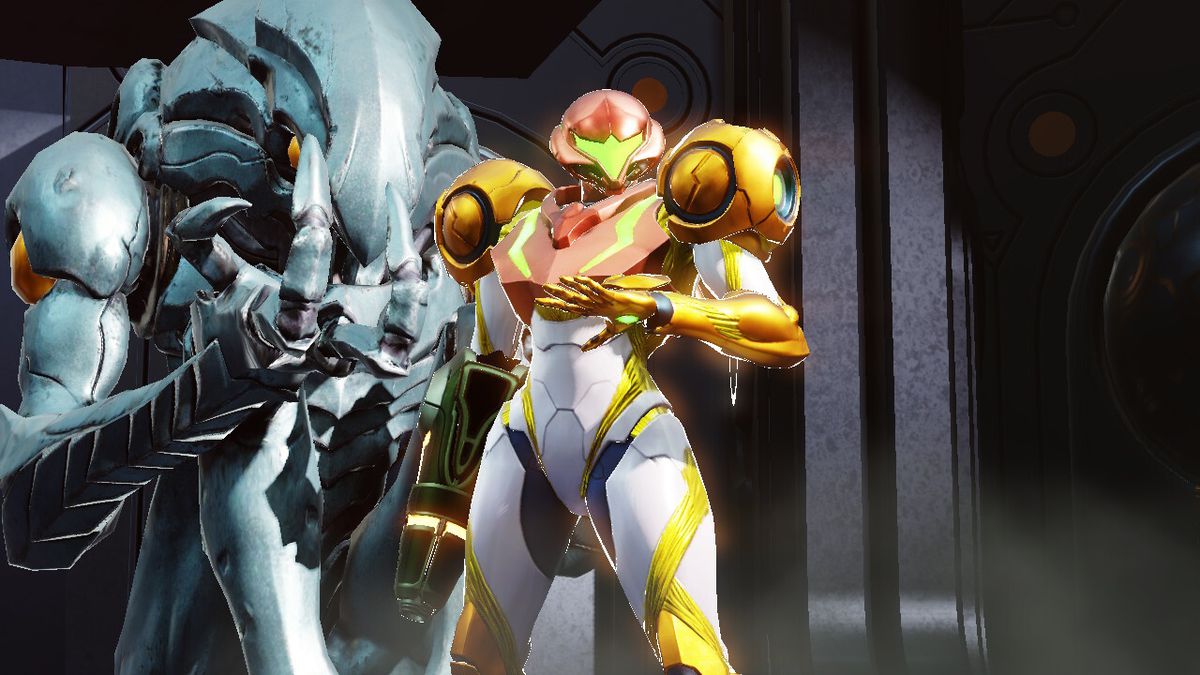
Where to play: Nintendo Switch
A Metroid game on a list of Metroidvanias — it just makes sense, folks! The real challenge is which Metroid game to select, and when it comes to starting points, Metroid Dread serves as the best modern-day entry point to the series as a whole, and particularly the 2D Metroids (there are also 3D ones — we’ll get to that).
Like all the other games on this list, Metroid Dread includes the best of environmental puzzle platforming, but this is a Metroid game, so there’s also a moody, Alien-inspired atmosphere, tense boss battles and action sequences, and a minimalist but striking narrative that spreads across the entire experience. If you play just one Metroid game, make it this one — just be aware, it’ll hook you on the rest regardless. —Maddy Myers
Metroid Prime Remastered
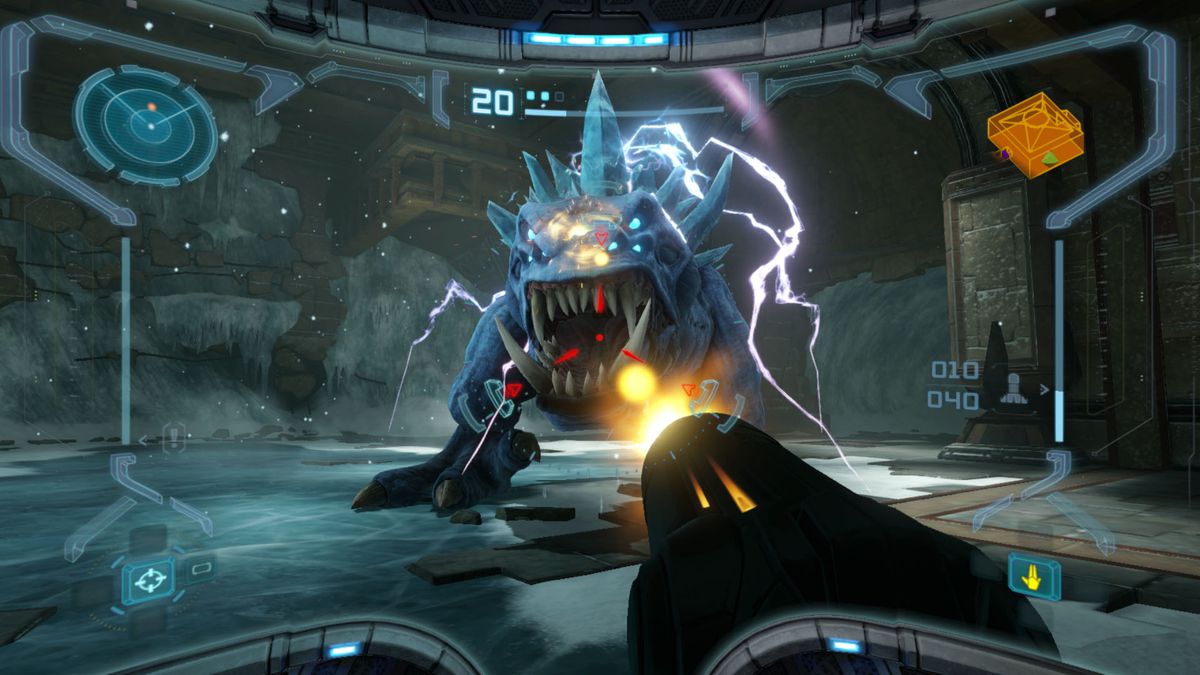
Where to play: Nintendo Switch
The term “Metroidvania” tends to evoke 2D puzzle platformers, but Metroid as a franchise is not beholden to just two dimensions.
The first game in the Metroid Prime trilogy got a stunning Nintendo Switch remaster in 2023 that has become the de facto “best” option for replaying the 2002 game. Just be aware — or perhaps, be warned — that the remastered version of the game changes almost nothing about the original 2002 experience except its appearance. The distance between save points is still just as punishing; the payoff of every environmental puzzle, just as rewarding. —MM
Ori and the Will of the Wisps
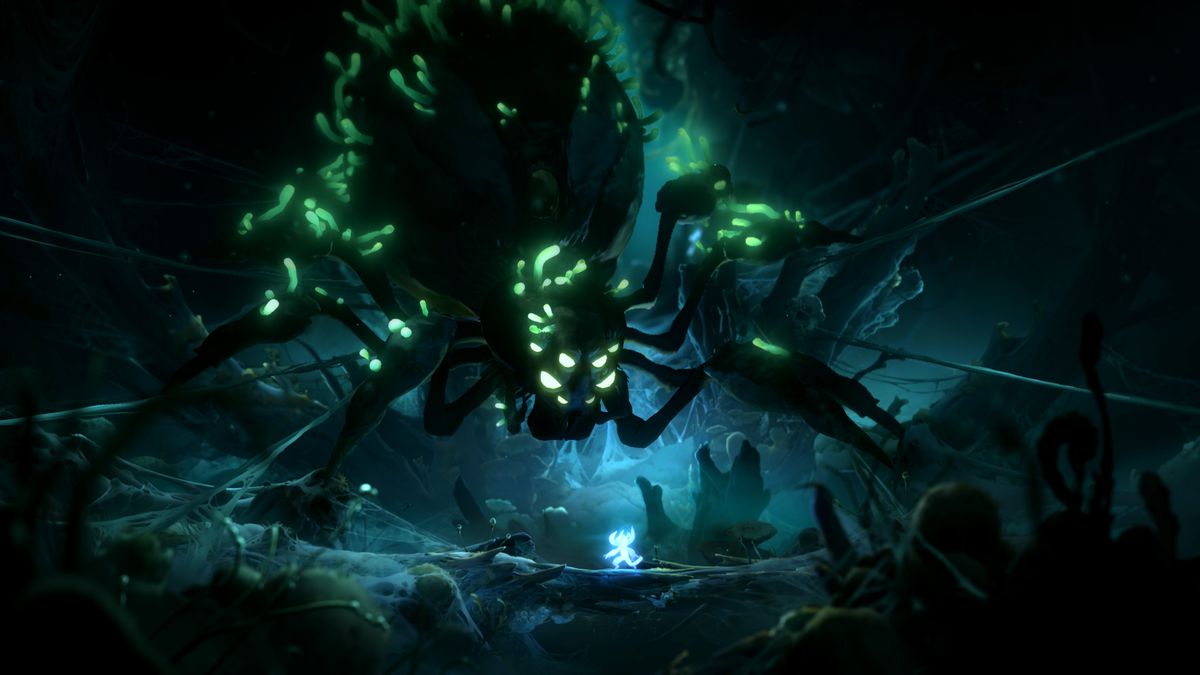
Where to play: Nintendo Switch, Windows PC, Xbox One, and Xbox Series X
Ori and the Will of the Wisps is an ostensibly pensive game, so the sheer amount of ass-kicking it doles out may catch you off guard. That’s not just a remark on its progressive difficulty (many subregions introduce a new traversal gimmick for you to master). It’s also a comment on how much of a gut-punch the story is. You play as a comically adorable forest spirit, tasked with navigating a picturesque forest that would fit right into any Studio Ghibli film, all in an effort to rescue a baby owl (who’s also your BFF). Will of the Wisps’ giant, angry spider might be one of the tougher bosses in modern Metroidvanias. But it can’t beat the power of friendship. —Ari Notis
Prince of Persia: The Lost Crown
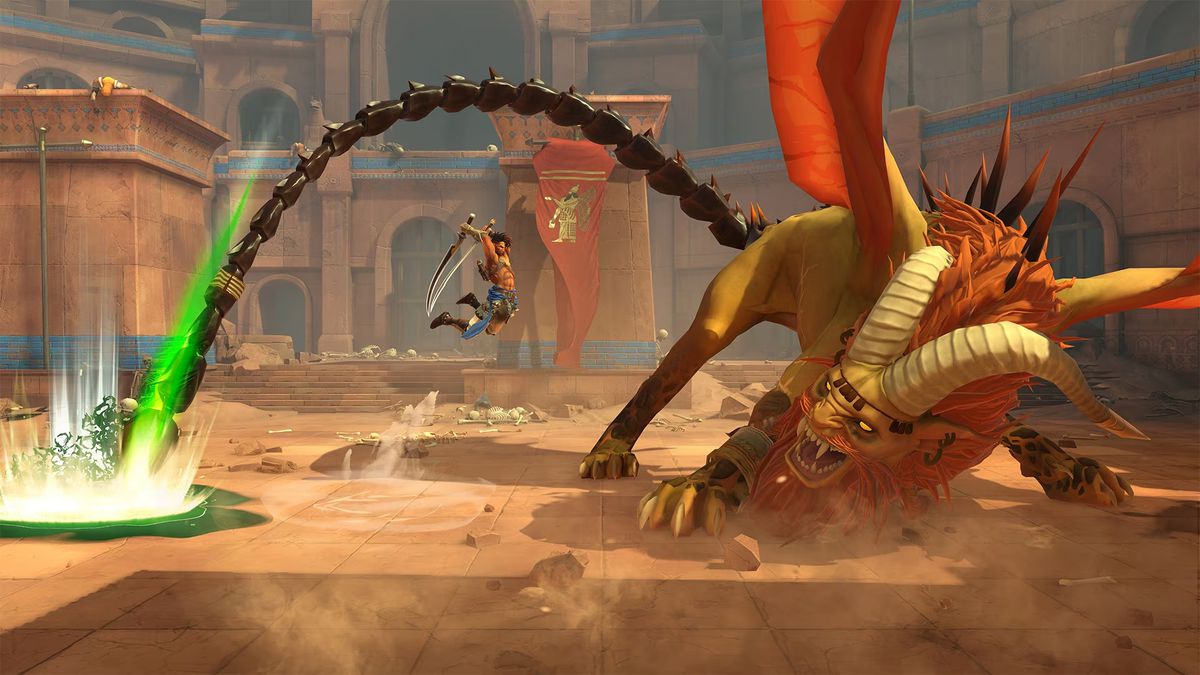
Where to play: Nintendo Switch, PlayStation 4, PlayStation 5, Windows PC, Xbox One, and Xbox Series X
Prince of Persia: The Lost Crown is like an oasis in the desert. This is not to say Metroidvania fans have been parched, per se, but it’s been ages since one as instantly totemic as The Lost Crown has come along. You’ll come across a white-knuckle needle drop — whether a boss fight, a platforming sprint, or a plot twist — every few minutes. And like with the best in the genre, you slowly unlock abilities that expand how deeply you can explore the game’s domain. But The Lost Crown also features inventive mechanics that minimize needless backtracking, making it the rare Metroidvania that challenges you and surprises you while fully respecting your time. —AN
